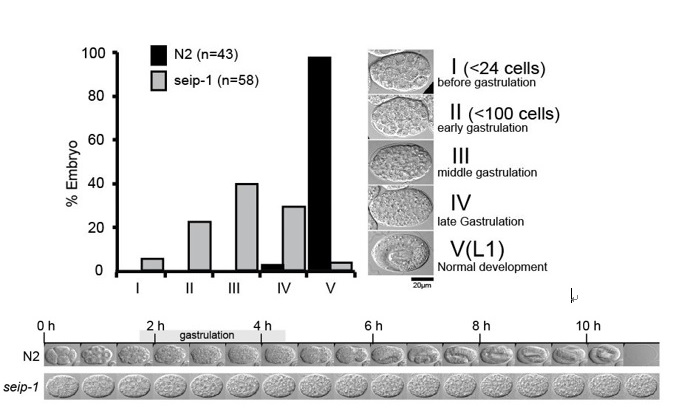[Chao-Wen Wang] Loss of the seipin gene perturbs eggshell formation in Caenorhabditis elegans
POST:This study is a joint effort of three research groups with a focus on SEIPIN, which is an evolutionarily conserved protein regulating both adipocyte development and lipid droplet (LD) biogenesis. Dysfunction of SEIPIN causes a variety of human diseases, including lipodystrophy, neuropathies, and male and female infertility. However, the cellular and molecular mechanisms of SEIPIN in causing these diseases are poorly understood. We found that C. elegans deleted for SEIPIN, termed seip-1, resulted in embryonic lethality but showing no obvious defects during later developmental processes in the hatched seip-1 mutant larvae. The embryogenesis defect is largely due to the failure of synthesizing the permeability barrier that protects developing embryos from penetration of small molecules. Lipidomic and transcriptional analyses reveal that the seip-1 deleted young embryo altered fatty acid (FA) homeostasis. Interestingly, dietary supplementation with polyunsaturated fatty acids (PUFAs) largely relieves the embryonic lethality of the seip-1 deletion worm via the restoration of the permeability barrier. Our findings support that dietary supplementation may be used as a potential treatment for human metabolic disorders.
